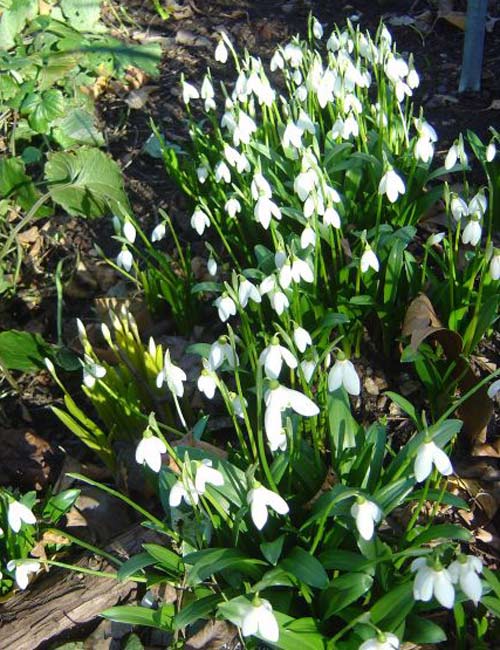Urban gardener: Little drops of heaven

"Quick! Something amazing has happened! Come and see!" As always, an enthusiastic welcome from Rosie Atkins, curator of the Chelsea Physic Garden. It was late afternoon on a dismal day but I duly followed her around the northern perimeter to a lit greenhouse where a small group of people were peering at a long line of pot plants. "Have a look at our welwitschia. It's giving birth."
Experience has taught me not to pretend to know what you're looking at when you don't know the plant in question. Fortunately, not only were Rosie and the Physic Garden's head gardener, Mark Poswillo, there to enlighten me but Professor Michael Frohlich, formerly of the Natural History Museum, now at the Royal Botanic Gardens, Kew, gave us a fascinating account of Welwitschia mirabilis, hinting that it might help scientists unravel the mystery of how plants came to produce flowers.
The strange-looking plant, with strap-like leaves curled like a giant yogi master's fingernails, is an ancient conifer native to the Namib Desert and the tiny protrusion, was in fact the beginnings of a cone. Some one hundred plants, all propagated by seed obtained from Huntington Botanic Garden in San Marino, California, filled the greenhouse, the unusually high success rate the result of diligent work by Mark and his team.
As fascinating as it was, the welwitschia wasn't what I'd come to see. The Physic Garden is only open to "Friends" during winter but for two weekends this month the public will be allowed to savour snowdrop season and I'd come for a sneak preview. But the beauty of "London's best-kept secret" is that the treasures that exist in a mere three-and-a-half acres mean that you could come into the Physic Garden once a week and still learn something new.
We picked our way through sodden paths, round makeshift barriers, deftly avoiding Somme-like trenches dug by contractors taking advantage of the dormant season to install irrigation and a rather handsome brick path. This, as it turns out, is largely because since Rosie took over the role of curator in 2002, visitor numbers have more than doubled and garden paths have borne the brunt of the increased foot traffic.
Originally founded in 1673 by the Society of Apothecaries, The Physic Garden was created to enable their apprentices to grow medicinal plants for study and research. Dr Hans Sloane was the owner when the Apothecaries hit troubled times and, having been a student there himself, granted them a lease on the land for the sum of £5 a year in perpetuity (a cheque for the amount is still paid to Sloane's heirs).
Today, education, conservation and scientific research for botanists (such as the welwitschia project), is just as important as ever and, with more than 3,000 children visiting the garden each year, a custom-built Education Department highlights the value and importance of plants in our everyday lives. Rosie and her team have even invented a card game called Plant Families which celebrates the life work of Carl Linnaeus, making the process of learning botanical classification easier and more fun.
We stop to admire the poisonous, climbing Dutchman's Pipe (Aristolochia elegans) and a verdant bank of almost edible-looking echiums before I see the staging that will become the snowdrop theatre for the open weekends and I remember what I've come to see. Dusk, however, has cast its shroud and labels are now illegible. A blessing really, for as important as names are it allows the luminous beads of hope, dotting and nodding like ghostly sprites, a moment of pure magic and plenty of time to breathe.
Chelsea Physic Garden, 66 Royal Hospital Road, London SW3. Snowdrop weekends are on today and tomorrow and 9-10 February, from 10am to 4pm. Adults, £7; children (5-15yrs), £4. Visit www.chelseaphysicgarden.co.uk, or call 020-7352 5646 for general enquiries
Subscribe to Independent Premium to bookmark this article
Want to bookmark your favourite articles and stories to read or reference later? Start your Independent Premium subscription today.

Join our commenting forum
Join thought-provoking conversations, follow other Independent readers and see their replies